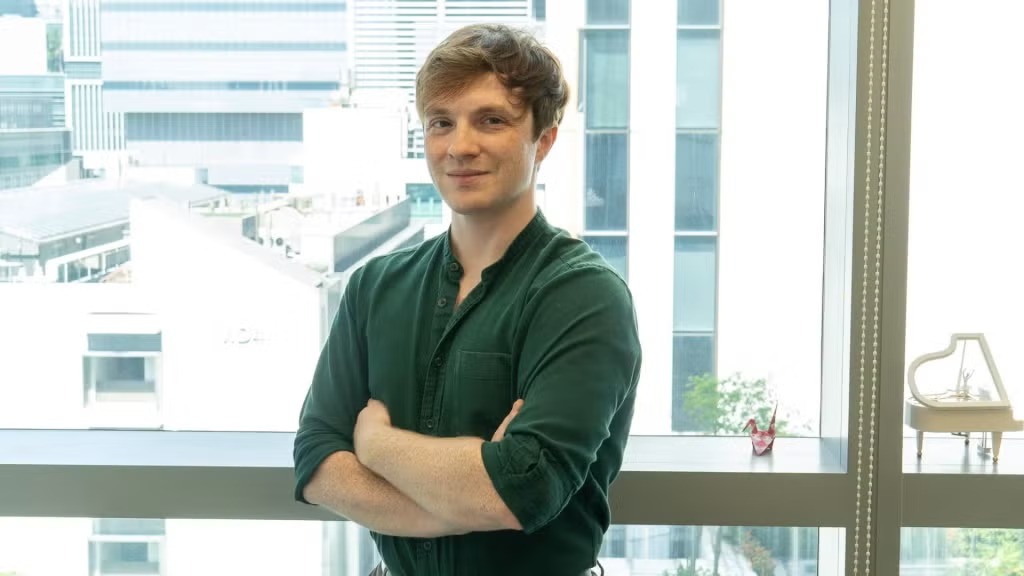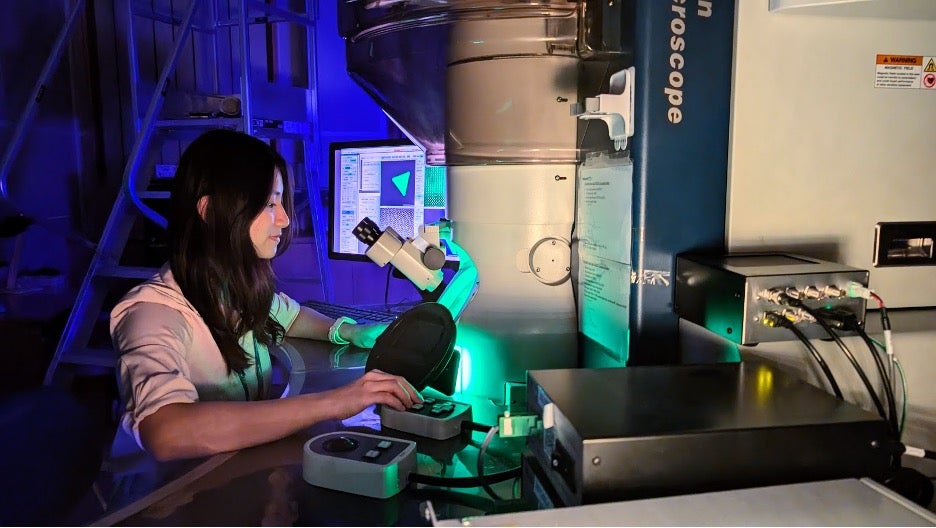
Strain Control of Third Harmonic Generation in Nb2SiTe4 Driven by Tuneable Anisotropic Characteristics
A study on the strain control of third-harmonic generation in Nb₂SiTe₄ driven by tunable anisotropic characteristics, led by fourth-year MSE undergraduate Yihang Ouyang under the supervision of Assistant Professor Maciej Koperski and Professor Kostya Novoselov (Department of Materials Science and Engineering, CDE, NUS) in collaboration with NUS alumnus Professor Zhihui Chen and Professor Jun He (Central South University, China), has been published in Advanced Functional Materials (IF = 18.5).

Research Contents and Significance
Nonlinear optical processes play a paramount role in the investigations of the emergent symmetries of the crystals, which in principle can be strongly influenced by strain. The generation of higher-order optical harmonics enables converting the optical response of materials across different spectral regions, e.g., from infrared to visible windows. Such technology is necessary in the development of optical devices, particularly those that leverage the anisotropic characteristics of crystals.
Despite such multi-faceted functionalities of non-linear processes, we still lack universal platforms with strong non-linear optical responses strongly tuneable via versatile methods. In this study, the team addresses this challenge by demonstrating the resonant generation of third-harmonic signals in exfoliated layers of Nb2SiTe4 crystals. The application of strain along principal crystallographic axes (short and long fundamental directions) enables the modulation of the third harmonic signals resolved by the linear polarization through competition of different mechanisms: tuning the energy of the interband absorption resonances, while concurrently altering the crystallographic symmetry across qualitatively different regimes.

In this work, the record high third-order susceptibility of Nb2SiTe4 flakes was demonstrated to be over an order magnitude larger than that of commonly used three-dimensional and two-dimensional crystals. The team elucidates the origin of such a strong response to the combination of the resonant conditions of the pump energy with interband absorption processes emerging due to the unique band structure of Nb2SiTe4 with the precisely tunable thickness of two-dimensional systems.
In addition, the strain-induced modulation of the anisotropic characteristics of Nb2SiTe4 flakes enables achieving qualitatively distinct regimes of optoelectronic response, driven by the direction-dependent modifications to the crystal and band structure. Consequently, the anisotropy axis of the crystal can be reoriented by strain, demonstrating the potential of the dynamically controlled functionalities based on the parametric up-conversion strongly sensitive to the polarization properties of light.
This work provides a new perspective on broadband modulation of nonlinear optical processes emerging in anisotropic materials, enabling potential applications in anisotropic optoelectronics and all-optical devices.
NUS Undergraduate Research
NUS CDE has a long tradition of fostering undergraduate research experiences and has implemented a mentorship system across many disciplines. Since his first year, Yihang has been attached to the Institute for Intelligent Functional Materials, with Assistant Prof. Maciej Koperski as his mentor in the MSE department. This research was supported by the NUS Research Experience (REx) Grant for undergraduate research.




